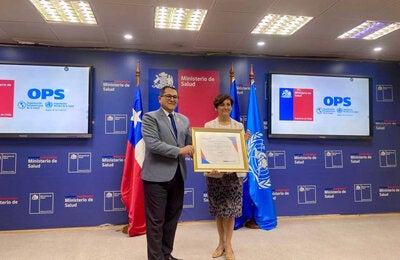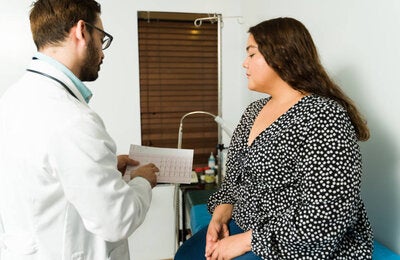
Approves "historic" plan of action on universal health coverage, among other actions
Washington, D.C., 7 October 2014 (PAHO/WHO) — Ministers of health from throughout the Americas pledged a series of actions last week to protect and promote health in their countries, during the 53rd Directing Council of the Pan American Health Organization (PAHO), Regional Office for the Americas of the World Health Organization (WHO).
The ministers and delegates from PAHO's 35 Member States adopted new regional strategies and plans of action addressing major public health concerns in the Region of the Americas. They include:
- A strategy for universal access to health and universal health coverage, which lays out lines of action to ensure access for all people to the health services they need when they need them, without fear of financial hardship
- A plan of action to prevent obesity in children and adolescents that includes measures to improve foods provided in schools and to protect children from marketing of unhealthy foods
- A plan of action for universal access to safe blood, which seeks to increase voluntary altruistic blood donations and reduce reliance on paid and replacement blood donation, with the eventual goal of 100% voluntary blood supplies
- A plan of action on disabilities and rehabilitation, which seeks to increase the availability of rehabilitation services in PAHO member countries and promotes prevention of disabilities
- A plan of action on mental health that aims to increase the availability of mental health services, especially at the community level
- A plan of action on "health in all policies" that seeks to promotes action in other sectors that have an impact on health or on social conditions that affect health
- A plan of action for prevention of blindness and visual impairment that seeks to increase eye care services and prevent blindness, especially among premature babies, school-age children and adults over 50
- A plan of action to improve coordination of humanitarian assistance during emergencies and disasters, with a focus on health
The approval of the regional strategy for universal access to health and universal health coverage was a highlight of the five-day meeting. PAHO Director Carissa F. Etienne praised the plan for its "historic significance" and for its potential to advance "the fundamental right of everyone to enjoy the highest attainable standard of physical and mental health."
"I believe that our experience this week reflects Pan American solidarity at its best, as we have come to agreement based on deeply shared values and historically shared lessons," Etienne told delegates, referring to the plan on universal health coverage. "Now that we have a clear way forward and a collective Pan American commitment to achieving this goal, we must roll up our sleeves, commit the necessary resources, and secure the same commitment from other sectors in order to realize this goal."
PAHO's next Directing Council meeting is scheduled for September-October 2015.
The PAHO Directing Council meets yearly—except for every fifth year, when the Pan American Sanitary Conference meets instead—to set the organization's policies and priorities. Delegates include health authorities from PAHO's 35 Member States and representatives of its four Associate Members, three Participating States, and two Observer States. In addition to setting mandates for PAHO's technical cooperation programs, the meeting also provides a forum for technical experts and government representatives to exchange information and debate regional health priorities.
PAHO, established in 1902, is the world's oldest international public health organization. It works with all the countries of the Americas to improve the health and quality of life of their peoples and serves as the Regional Office for the Americas of the World Health Organization (WHO). For more information visit: www.paho.org



